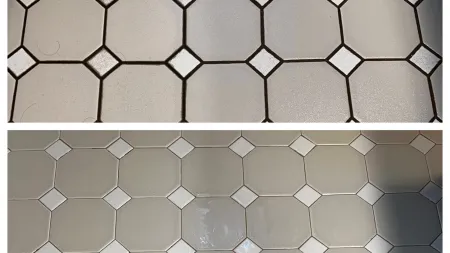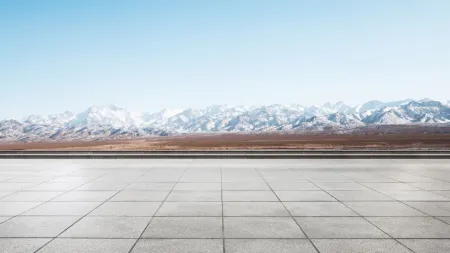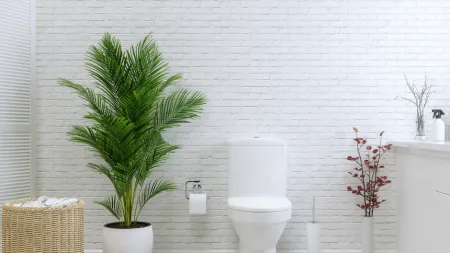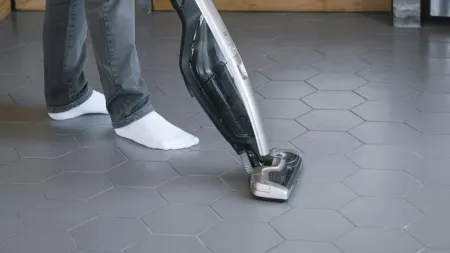VCT vs LVT: Differences, Similarities, Pros, and Cons
As a homeowner, a realtor, or a designer, many factors come into play when choosing between VCT (Vinyl Composite Tile) or LVT(Luxury Vinyl Tile) flooring due to durability, comfort, foot traffic, and cost.
LVT is made from pure vinyl composition and performs well in residential, industrial, and commercial flooring. It features a wear layer, making it great for areas prone to moisture and high traffic. LVT is expensive and durable but requires minimal maintenance.
VCT is a beautiful commercial, industrial, and residential flooring option but is porous and requires regular polishing. This comprehensive VCT vs LVT guide discusses the pros, cons, and differences. Make sure you read to the end.
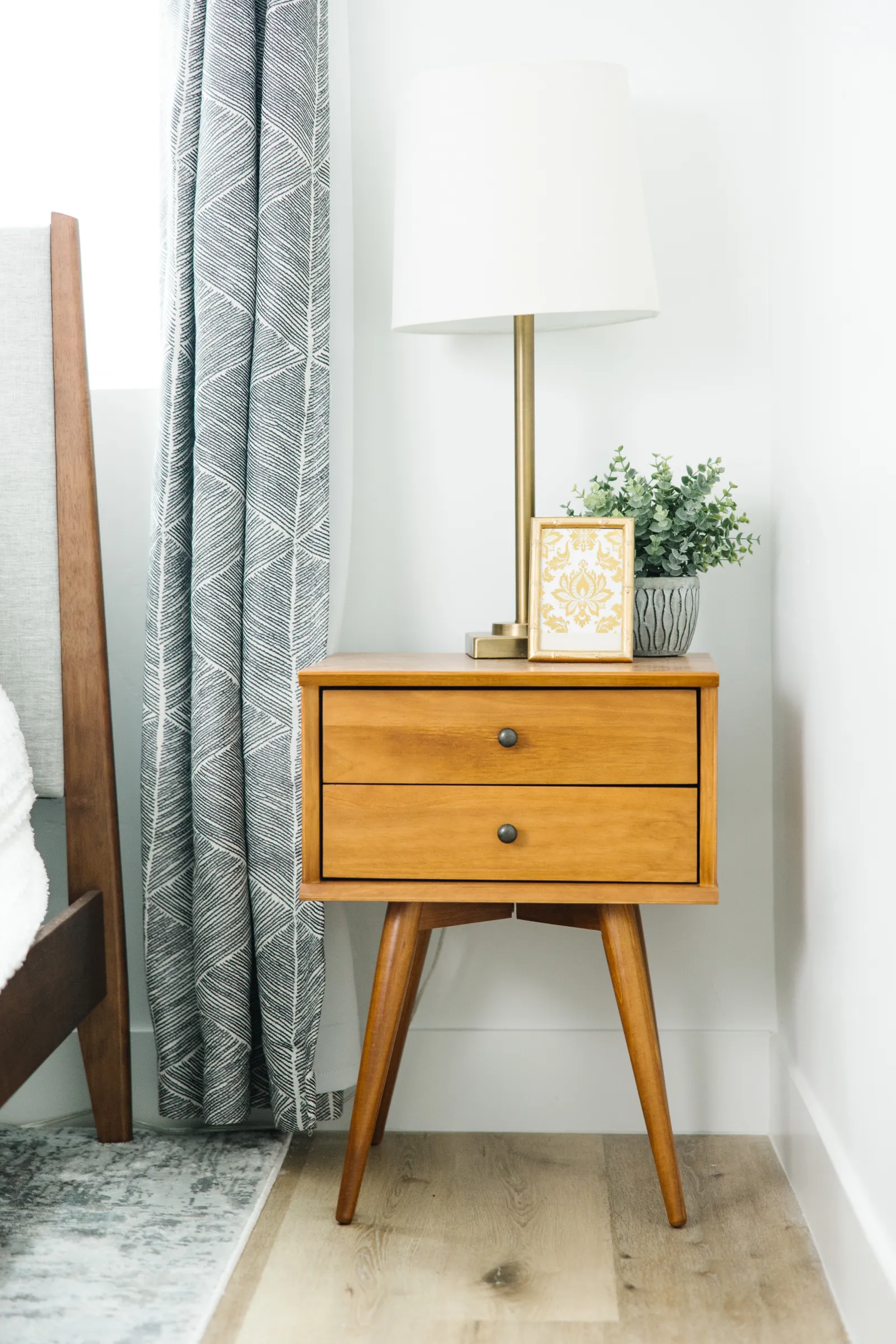
What Is LVT (Luxury Vinyl Tile)?
LVT is made of pure vinyl, a protective wear layer, and a photographic film layer or color pigment, making it a hard surface flooring ideal for industrial and commercial environments. LVT comes in varying designs, giving you luxurious and appealing flooring.
Luxury vinyl tiles are low-maintenance floorings because they don't need regular application of floor wax or finish. They're resistant to moisture, scratches, scuffs, and wear, making them long-term floor investment options.
You only need to sweep, vacuum, and wash with a damp mop to keep your LVT floor appealing.
What Is VCT (Vinyl Composite Tile)?
Vinyl composite tiles are composed of thermoplastics, limestones, and fillers. They are, hence, flexible and sturdy and able to withstand high foot traffic levels in health centers, grocery stores, schools, and restaurants, among others.
This type of flooring is highly customizable but offers only a few varieties of patterns and designs. It is also high-maintenance because polishing it every 6 to 12 months is necessary to keep it appealing and strong and protect it from pores.
To clean VCT, sweep, vacuum, or wash with a damp mop.
Is VCT the Same as LVT Flooring?
No, VCT is not the same as LVT. Below is a table showing the major differences between them.
| Features | LVT | VCT |
|---|---|---|
| Static Load | Higher static load resistance | Lower static load resistance |
| Maintenance | Easy to clean and maintain | Easy to clean, but requires regular polishing |
| Installation | Largest tile size makes the installation process fast | Tile size variations slows down the installation process |
| Moisture | Higher resistance to moisture | Prone to moisture |
| Cost | Higher upfront cost, lower maintenance cost | Lower upfront cost, higher maintenance cost |
| Aesthetics | Various designs and patterns available | Limited patterns and designs to choose from |
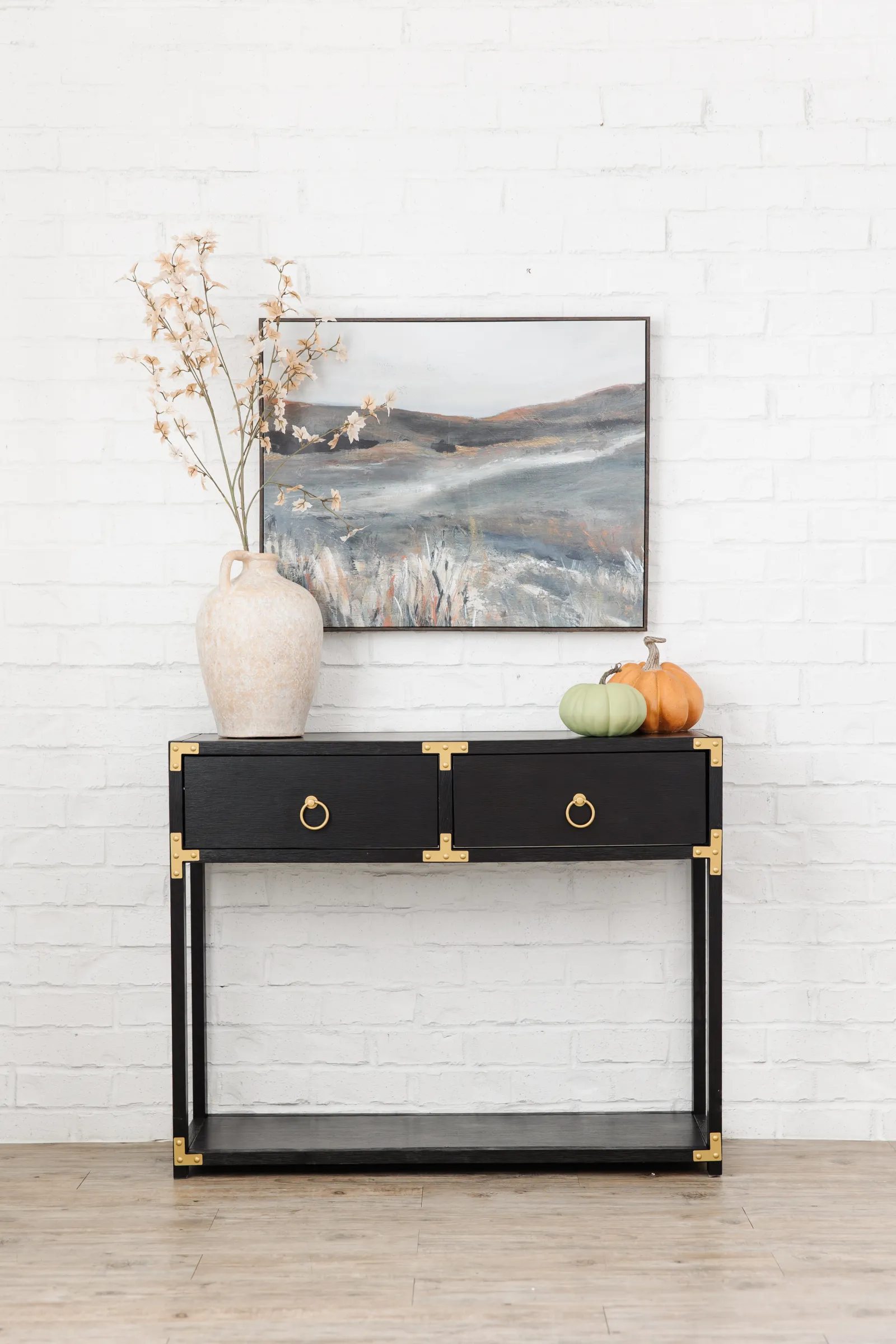
Comprehensive VCT vs LVT Comparison Guide
LVT and VCT can be used in commercial flooring, but their performance, design integrity, and composition differ greatly.
Below, we have a detailed comparison guide to determine which is the best for your flooring based on cost, durability, performance, stability, appearance, and application.
VCT vs LVT Stiffness and Durability
The composition of a tile determines its stiffness and durability. Highly durable flooring is great for commercial flooring and other high-traffic areas.
VCT: Vinyl composite tile brittles easily because it's composite flooring. Composite flooring is beautiful, eco-friendly, cheaper, easier to install, and durable. Vinyl composite tile has a lower static resistance.
LVT: Luxury vinyl tile is more durable, flexible, and sturdy than VCT because it's composed of 100 percent vinyl. It's highly resistant to scratches, wear, and dents; hence, it is a great choice for commercial places experiencing daily foot traffic and high object movement. LVT comes in different wear layer thicknesses to cater to varying traffic levels.
Luxury vinyl tile's ability to handle high static loads is higher than VCT's because of its high pounds psi rating.
LVT vs VCT Cost
Before choosing a floor, you must consider your long-term and short-term financial goals regarding the flooring. Some tiles are cheaper to buy and install, but the maintenance cost is higher. Other tiles are more expensive to purchase and install, but their maintenance cost is low.
VCT: The cost of vinyl composite tile (VCT) varies depending on the thickness and quality. Soft-textured and bright-colored VCT tiles cost around $4 per sq/ft, while a plain VCT tile costs about $1 per sq/ft. VCT installation depends on the complexity of the design, but it ranges between $2 and $5 per sq/ft.
After installing VCT, you should consider other expenses; for example, over the years, you'll need to wax and polish the floor to keep it in good condition.
LVT: LVT is cheaper to buy than wood or ceramic or porcelain tile flooring. The cost of installing LVT ranges between $3 and $10 per sq/ft, depending on your chosen installation method (peel-and-stick or floating).
LVT's wear layer is covered with one or more layers of urethane, adding to its sheen and protection. This means LVT doesn't need floor wax, reducing its overall cost.
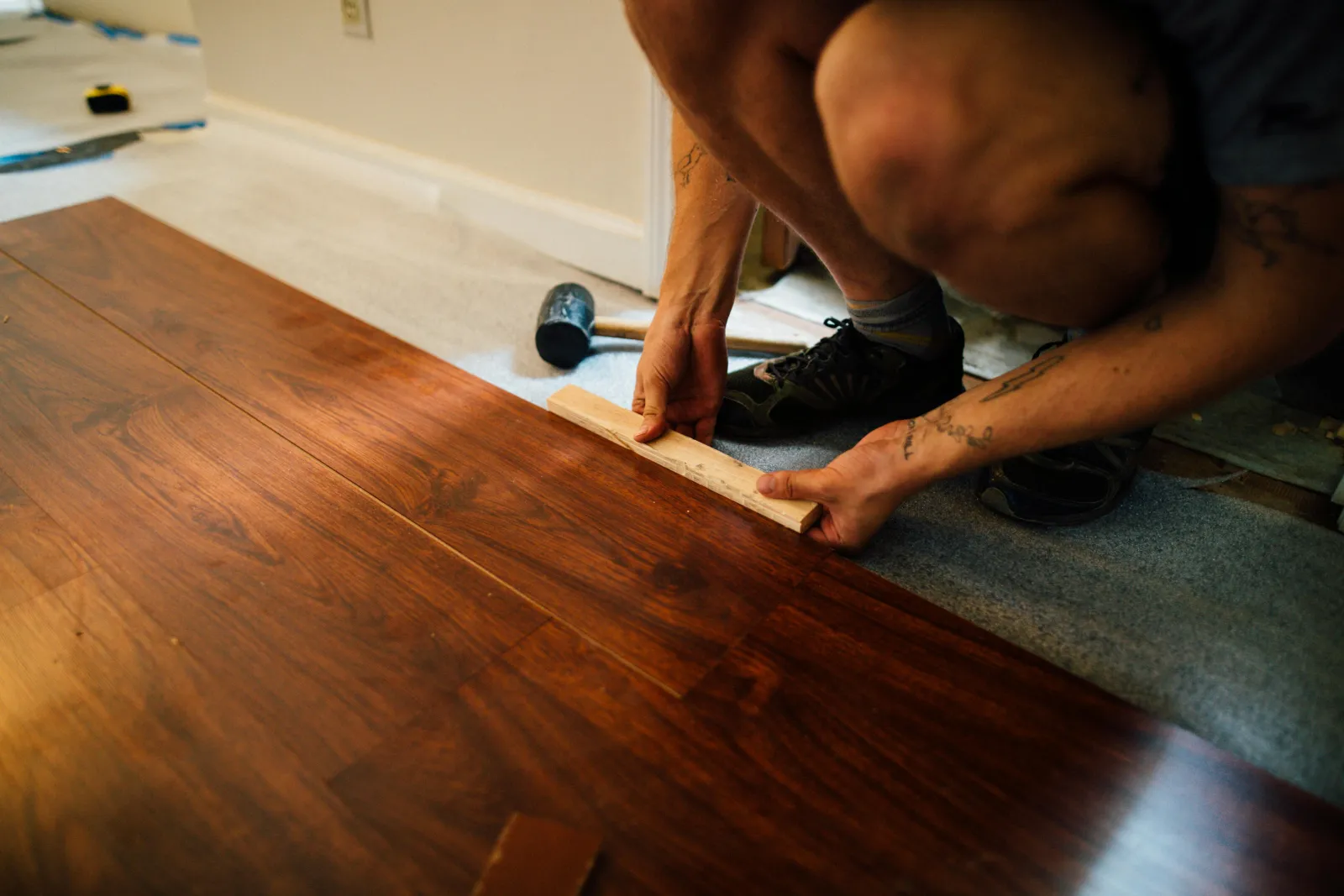
Application of LVT and VCT
Various factors have to be considered when determining where to use LVT or VCT, including expected foot traffic, regular asset movement, moisture, and lifespan, because each is made differently.
VCT: VCT can be installed in commercial flooring, such as business stalls, healthcare facilities, schools, shops, and other areas that are not moisture-prone.
LVT: LVT is not moisture-prone and doesn't require wax and finish, making it the best flooring type for commercial buildings that require high hygiene, such as hospitals, schools, and restaurants.
The different wear layer thicknesses make it easy to design your flooring and disguise everyday high-foot-traffic dirt; hence, it is also ideal for industrial areas.
Moisture Resistant of LVT and VCT
Moisture creates a great environment for mold and mildew to grow, damaging your floor. This explains why you should buy non-porous tiles.
LVT: LVT is water-resistant, so it is suitable for areas prone to spills and moisture, such as bathrooms, basements, kitchens, and laundry. This makes LVT a preference over hardwood flooring or laminate.
VCT: VCT is porous flooring, hence more prone to moisture than LVT, but you can apply a topical wax. Waxing prevents dirt damage, lowers spills' absorption rate, and hides minor dings, scratches, and scuffs.
Aesthetics: Which Looks Better?
While LVT may appeal to many, VCT may be a preference for others because "Beauty is in the beholder!"
LVT: If you want flooring that matches furniture and walls, consider LVT because it comes in varying patterns and designs.
VCT: Although few VCT patterns and designs exist, you can still find a great match for your commercial or residential flooring.
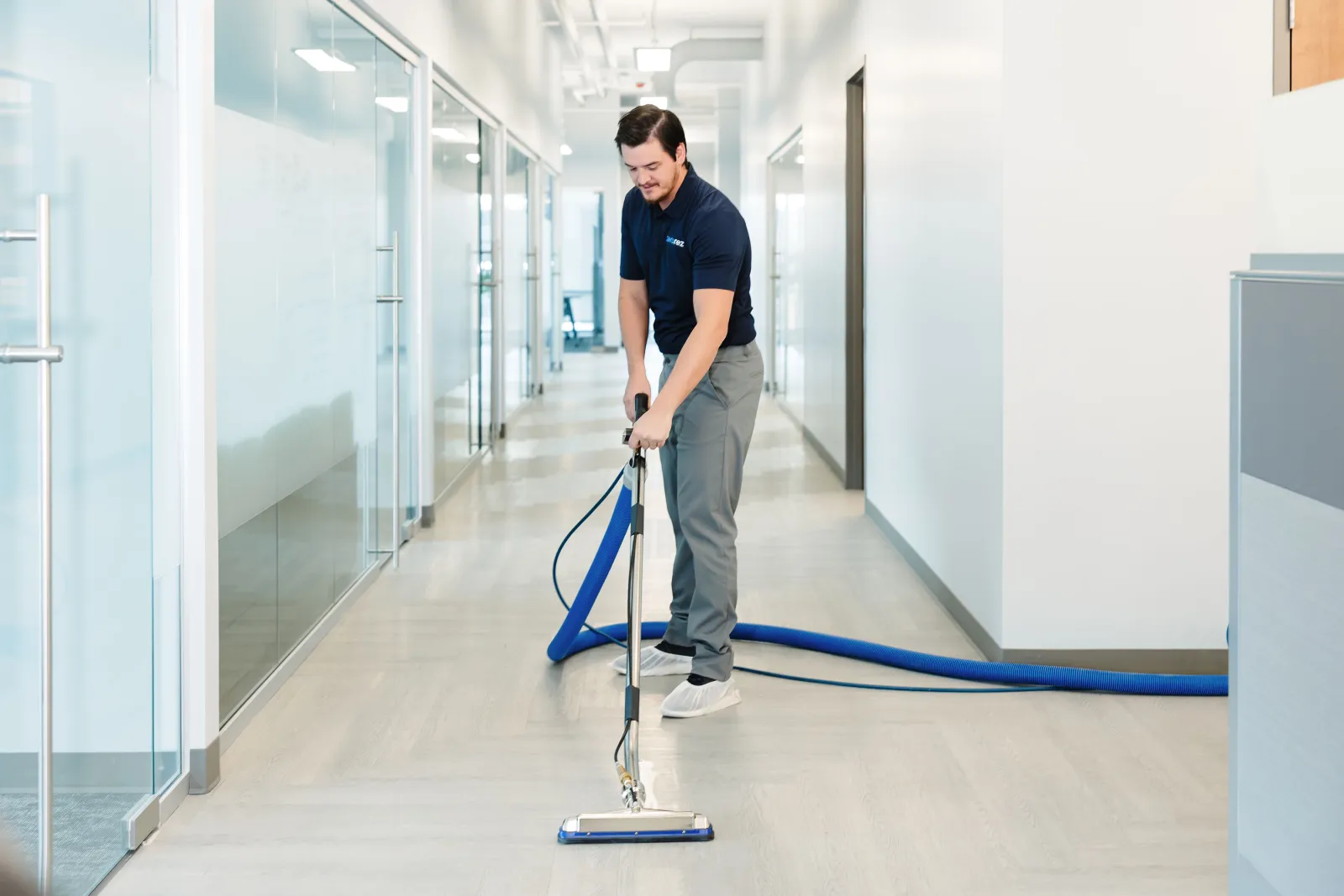
Care and Maintenance of LVT vs VCT
Easy-to-clean tile floors are easy to maintain because you only need to wipe off stains, dirt, and spills using a damp mop or cloth.
LVT: LVT needs minimal care and maintenance. Daily sweeping, vacuuming, or dry mopping is enough to keep the floor clean. LVT textures and patterns hide dirt perfectly, making daily cleaning unnecessary if there's low foot traffic.
VCT: Vinyl composite tile is also easy to clean (sweeping, vacuuming, and mopping), but to protect your floor against wear and tear, you must often apply wax/polish/finish.
Advantages of LVT Flooring
- Easy to clean: Only requires sweeping, vacuuming, and washing with a damp mop.
- Low maintenance: Doesn't need regular application of wax or finish.
- Strong and durable: LVT is scratch-resistant and lasts up to 30 years.
- Versatile: LVT can be installed on residential, industrial, and commercial floors.
- Value for money: Though the upfront cost of LVT is higher, it's a great investment because it lasts longer than laminate, VCT, and other flooring and is moisture-resistant.
- Plenty of designs and patterns available: LVT offers a variety of designs and patterns so that you can find a great color match for your furniture, walls, and curtains.
Disadvantages of LVT Flooring
- Cost: The upfront cost of LVT is higher because of its qualities, including resistance to moisture and the ability to last long and withstand high traffic.
- Discoloration: When exposed to direct sunlight for a long time, LVT fades, degrading the tile's aesthetic appeal.
- LVT can scuff or scrape: Heavy point loading, like using big furniture and appliances or dragging them across the floor, results in scratching.
- Hard to remove: Glued-down LVT is hard to remove during renovation.
Advantages of VCT Flooring
- Resilience: Withstands commercial, residential, and industrial high traffic without wearing out.
- Safe: VCT is a non-slip floor, making it safe for school and health center facility flooring.
- Cheaper: If you're on a budget, VCT flooring is ideal because it's cheaper to buy and install than LVT.
- Low noise level: Vinyl composite tiles have low noise levels, making your environment less noisy with high foot traffic.
Disadvantages of VCT Flooring
- Maintenance cost: To protect your floor from damage, you must apply wax and finish every 6 to 12 months.
- Prone to moisture: VCT is porous, hence not great for areas prone to moisture, but it's better than laminate and hardwood flooring.
- Fades: Exposure of VCT to direct sunlight results in fading.
- Difficult to remove: When glue is used during the installation of VCT, it becomes difficult to remove the tiles during renovation.
- Needs subfloor preparations: You must prepare the subfloor to ensure it is even before installing VCT.
What Is the Difference Between VCT and LVT and Linoleum?
Linoleum is a product of natural materials such as linseed oil, cork dust, wood flour, and other renewable compost. VCT combines natural limestone, color pigments, filler materials, and thermoplastic binders. LVT is a product of 100 percent vinyl, color pigment or photographic film layer, and protective wear layer.
Can You Overlay LVT With VCT?
Yes, you can overlay LVT with VCT, but you must ensure some areas are not lifting and that the VCT is in good shape.
Zerorez® Cleans Residential and Commercial Tiles!
Zerorez delights in Cleaning Surfaces that Matter Most™, including tile and grout, upholstery, carpet, and area rugs! We are always open to new cleaning opportunities. Don't hesitate to give us a call.
